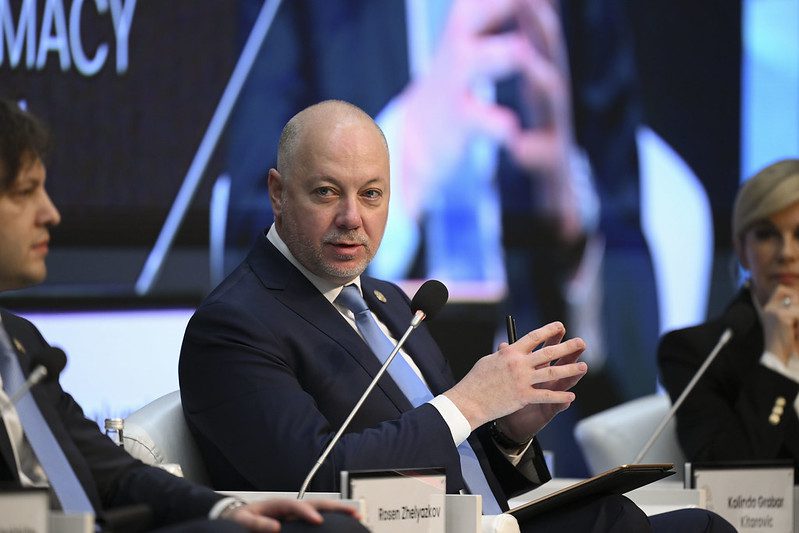In a dramatic escalation of political tensions, all roads to the Bulgarian parliament were blocked by members of the opposition coalition We Continue The Change – Democratic Bulgaria (PP-DB). Reports suggest that the blockade was not spontaneous but had been in preparation since the previous day, aiming to prevent two controversial figures, GERB leader Boyko Borisov and oligarch-turned-MP Delyan Peevski, from entering the parliamentary building.
The protest was primarily aimed at blocking access to Borisov and Peevski, both of whom are seen by opposition MPs as symbols of state capture and corruption. Tensions flared when Peevski bypassed the blockade with the help of his private security detail, prompting a heated confrontation with PP-DB leader Asen Vasilev inside the Parliament chambers.
In recent weeks, Bulgaria has seen a surge of anti-government protests fuelled by a combination of local and national grievances. In northern regions, water shortages have sparked outrage over perceived government mismanagement, while in the coastal city of Varna, demonstrators are calling for the release of Mayor Blagomir Kotsev. Detained since July on allegations of bribery and links to organised crime, Kotsev has yet to face formal charges, prompting opposition leaders to label him a “political prisoner”. The PP-DB argues that the case against Kotsev is politically motivated, accusing Borisov and Peevski of orchestrating a broader campaign to suppress dissent and consolidate power.
Peevski, a controversial figure with deep ties to Bulgaria’s media and business sectors, is rarely seen in public without heavy security. Around 9 AM CEST, he managed to enter the Parliament building, reportedly using a side entrance with assistance from his security team. This led to a physical and verbal standoff with PP-DB members, during which he accused Vasilev of being a “robber” and promised to “shut down” the party. In a bizarre and cryptic remark, Peevski claimed he would “return the country with a big D”; a statement many interpreted as a reference to his own name, Delyan, and symbolic of his ambition to dominate Bulgaria’s political landscape.
Meanwhile, the nationalist party Revival has announced plans to stage a separate protest outside Parliament later today, centered on opposing Bulgaria’s planned Eurozone accession, scheduled for January 2026. Revival has previously mobilised around economic sovereignty and anti-EU sentiment, and their protest is expected to attract a different crowd from the PP-DB demonstrators, though both share a demand for the government’s resignation.
In a crucial test of his leadership, Prime Minister Zhelyazkov successfully weathered a vote of no-confidence in Parliament, his government’s fifth since taking office in early 2025. The motion, tabled by the opposition bloc consisting of We Continue the Change – Democratic Bulgaria (PP-DB) as well as MeCH and APS was supported by nationalist factions Revival and Greatness. The opposition accused the government of failing to address corruption, political repression and growing regional disparities.
However, the attempt to topple the government fell short, as DPS-New-Beginning, GERB, BSP and “There is Such a People” rejected the vote. Analysts had long argued that despite the disruption and protests, the arithmetic in Parliament was in Zhelyazkov’s favour.
Nevertheless, the event has left a political scar. The dramatic scenes outside Parliament, including road blockades, clashes between MPs and rising civil unrest, signal public confidence in institutions is waning. Even though the Prime Minister retains power, his government now faces the dual challenge of restoring trust and navigating a volatile political climate, with more protests planned and opposition parties pledging continued resistance. While Zhelyazkov has overcome today’s challenge, frustrations persist and the question is how will he navigate his government through the political uncertainty.
Featured Image via Harun Özalp – Anadolu Agency

